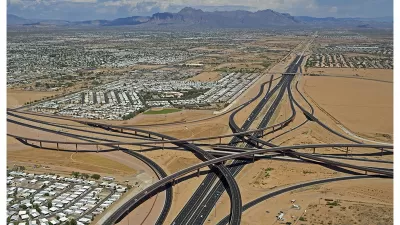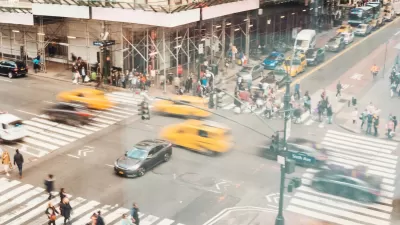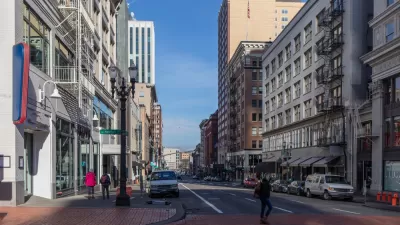"With this campaign, we’re making clear that zero is the only acceptable number of deaths on our roads."

The U.S. Department of Transportation announced October 5 that it has committed $1 million a year for the next three years to a national Vision Zero program.
The campaign relies on a large coalition of safety advocates, data and behavioral scientists, community planners, policy analysts, and officials at all levels government.
Though a target date to reach zero traffic deaths nationwide is not specified, the plan identifies short-term actions in the service of long-term goals. From the press release:
Our short-term focus is to promote innovative strategies that save lives over the next three to five years. Those strategies include improving seat belt use and motorcycle helmet; redesigning streets; truck safety; and leading driver behavioral change campaigns.
In the long term, our efforts will focus on overall system design, new vehicle technology, enforcement, and behavioral safety. With the rapid introduction of automated vehicle technologies that may prove to be a road safety game changer, our goal of zero deaths is achievable in our lifetimes.
The DOT will also be awarding competitive grants to national organizations to implement “innovative strategies” to reduce traffic deaths.
FULL STORY: Moving Forward on the Road to Zero Traffic Fatalities

Alabama: Trump Terminates Settlements for Black Communities Harmed By Raw Sewage
Trump deemed the landmark civil rights agreement “illegal DEI and environmental justice policy.”

Study: Maui’s Plan to Convert Vacation Rentals to Long-Term Housing Could Cause Nearly $1 Billion Economic Loss
The plan would reduce visitor accommodation by 25% resulting in 1,900 jobs lost.

Planetizen Federal Action Tracker
A weekly monitor of how Trump’s orders and actions are impacting planners and planning in America.

Wind Energy on the Rise Despite Federal Policy Reversal
The Trump administration is revoking federal support for renewable energy, but demand for new projects continues unabated.

Passengers Flock to Caltrain After Electrification
The new electric trains are running faster and more reliably, leading to strong ridership growth on the Bay Area rail system.

Texas Churches Rally Behind ‘Yes in God’s Back Yard’ Legislation
Religious leaders want the state to reduce zoning regulations to streamline leasing church-owned land to housing developers.
Urban Design for Planners 1: Software Tools
This six-course series explores essential urban design concepts using open source software and equips planners with the tools they need to participate fully in the urban design process.
Planning for Universal Design
Learn the tools for implementing Universal Design in planning regulations.
Caltrans
Smith Gee Studio
Institute for Housing and Urban Development Studies (IHS)
City of Grandview
Harvard GSD Executive Education
Toledo-Lucas County Plan Commissions
Salt Lake City
NYU Wagner Graduate School of Public Service





























